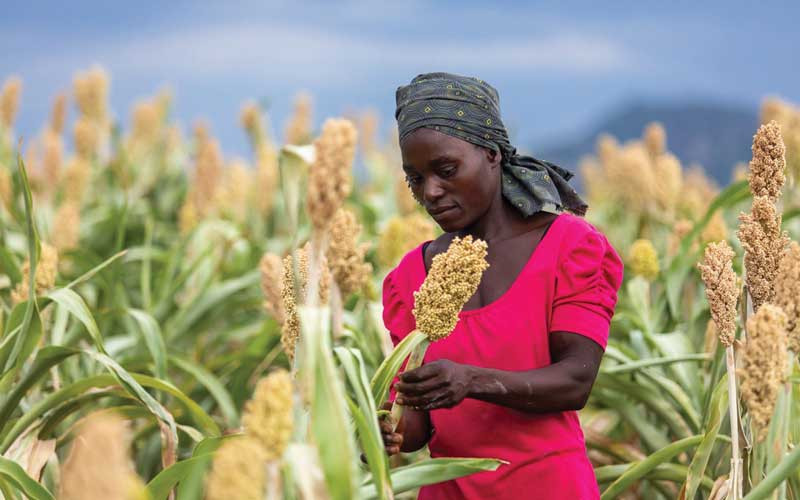
WITH climate change firmly in the public domain without any signs of receding, wishing it away or avoiding it has never been an option. Taking it head-on is the only option, hence the political leadership of any country should sufficiently orient itself with climate-related knowledge and literacy so that its political campaigns make climate change a high priority.
Making climate change a high priority is key in many transformative ways, especially in terms of the preservation of natural resources of any country. Considering how many developing countries are watching over the destruction of their physical environment by their proxy-friendly nations, knowledge of climate change is necessary. Deforestation, land degradation, sporadic mining and wildlife decimation is accelerating at alarming rates as if we are the last generation.
Knowledge of climate change is there to define the future of any country and political leadership should demonstrate depth in climate knowledge and information so that it can be elected based on its climate literacy.
The electorate of any country should make political leaders accountable for their climate actions when making electoral choices. When it comes to knowledge of climate change and making it a key component in their everyday transactions, many political leaders are a disgrace due to climate ignorance and climate illiteracy.
This has been witnessed on issues concerning Agenda 2030, where many politicians display their ignorance of what it means or who is the source. It is shocking to witness several politicians taking Vision 2030 as a party slogan instead of an international development mantra.
Instead of making pro-environmental decisions, the political leadership makes political decisions that are dangerous to the environment not people-centred, planet-centric and sustainable. It is not enough just to utter the term climate change without elaborating as their climate competencies determine the sustainable future of their constituencies. Therefore, climate change, during election campaigns in Zimbabwe, has not taken centre stage from both government and the opposition. For that reason, the electorate ends up electing leaders who are dangerous to the environment. Many people, who live in marginal areas affected by climate impacts, look for solutions to the wrong people, that is the political leadership which lacks climate competencies and depth.
This is also compounded by the inept journalistic fraternity which is also a stranger to the discourse of climate change, choosing to praise-sing the political leadership instead of communicating climate change to the public in ways that transform their lives. The public looks for comprehensive climate knowledge and information from journalists, but quite a number are not climate informed to sufficiently educate the public on matters regarding climate change.
The public needs to link extreme weather events — flooding, droughts and cyclones — to climate change as it happens in their local environments, but that knowledge always escapes the communities. Therefore, people need climate knowledge so that they demonstrate climate behaviours that contribute to environmental conservation, food and water security thereby improving their livelihood options, make decisions and resilient options.
- COP26 a washout? Don’t lose hope – here’s why
- Out & about: Bright sheds light on Vic Falls Carnival
- COP26 a washout? Don’t lose hope – here’s why
- Out & about: Bright sheds light on Vic Falls Carnival
Keep Reading
These should be embedded in the people’s everyday lives so that they can make knowledge of their local landscapes useful.
Communities need knowledge on how they can get out of the intricate web of energy poverty and many environmental atrocities committed on them by government proxies. The public also need to be saved from climate information overload of double-speak from the authorities.
This is the information that presents government as champions of environmental conservation when at the same time it commits environmental crimes on its people. Informed communities become environmental stewards and guardians of nature and are able to take the political leadership to task over environmental crimes.
The public lack climate information value chains from their politicians and they are lost in environmental dilemma and climate information bankruptcy. Communities need information that makes them climate relevant in the 21st century information society and knowledge economy as part of climate life-long learning. This is important in building resilient local economies, gaining visibility and improving their voices and representations.
Knowledge of climate change on the part of the political leadership is not only a requirement but a human right too. In this regard, the political leadership needs to be meaningful, useful and relevant to the people they represent. They need to show not only political wisdom but climate wisdom too which saves the earth and the people.
Politicians should be able to speak the language of sustainable development, especially sustainable development goals because they are not only targets to be localised but they are also socio-political benchmarks for politics and development.
There is a need for intrinsic motivation for politicians to present themselves as competent, knowledgeable and convincing in the eyes of the electorate. In this regard, they must not only be selectable but should possess necessary qualities to be electable.
Above all and everything else, climate change as a form of popular culture, should resonate well with the frame of reference of political discourse and community of practice. Politics does not only tick but it tricks as well, therefore, the public should guard against being taken for granted by incompetent politicians.
Peter Makwanya is a climate change communicator. He writes in his personal capacity and can be contacted on: petrovmoyt@gmail.com










